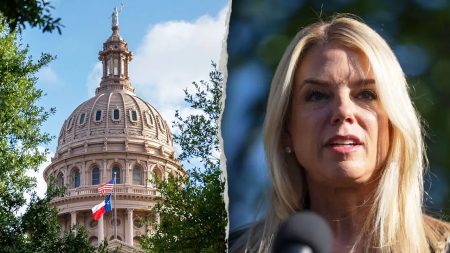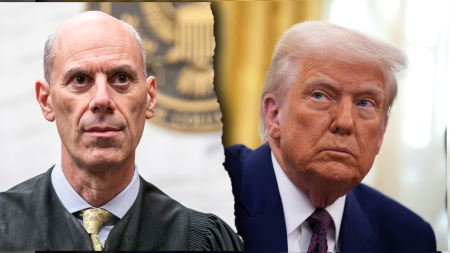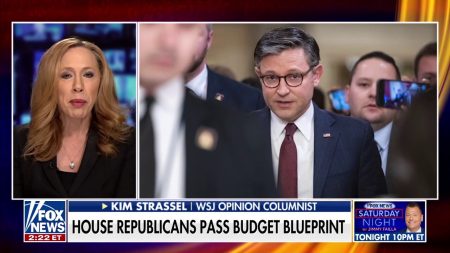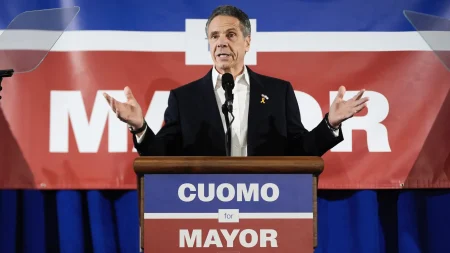The White House press briefing room became a battleground over President Biden’s pardon of his son, Hunter Biden, with Press Secretary Karine Jean-Pierre facing a barrage of questions from reporters. Jean-Pierre’s main defense revolved around President Biden’s personal struggle with the decision, emphasizing that the President “wrestled” with the circumstances before granting the pardon. She pointed to the President’s own statement as the most accurate reflection of his thought process, urging reporters and the public to refer to it for a deeper understanding of his rationale. While acknowledging the President’s previous stance against a pardon, Jean-Pierre attributed the shift to changing circumstances, particularly the increasingly aggressive rhetoric from Republicans and Trump appointees, whom she characterized as seeking “retribution” against the Biden family. This, combined with the toll the ongoing legal battles had taken on Hunter and the Biden family, ultimately led to the President’s decision.
The press corps, however, remained persistent, challenging Jean-Pierre on whether the American public deserved an apology for what some perceived as a reversal of the President’s earlier position. Jean-Pierre skillfully sidestepped direct apologies, reiterating the President’s internal struggle and emphasizing public support for the pardon, citing a poll showing 64% approval. This tactic aimed to deflect criticism by portraying the decision as resonating with a significant portion of the population. She further bolstered the defense by referencing legal experts who, she claimed, supported the notion that Hunter Biden’s case was unlikely to result in criminal prosecution under similar circumstances, suggesting a degree of political motivation behind the charges. This narrative sought to frame the pardon not as an act of favoritism, but as a preemptive measure against potentially unjust prosecution.
Jean-Pierre’s strategic communication approach involved repeatedly highlighting the “changing circumstances” that influenced the President’s decision. This allowed her to create a narrative of evolving factors rather than a complete reversal of position. She skillfully shifted the focus from the President’s previous statements to the alleged threats from political opponents, portraying the pardon as a protective measure for the Biden family against a hostile political climate. This strategic framing aimed to justify the pardon as a necessary response to external pressures rather than an act of personal favoritism. By emphasizing the personal toll on the Biden family, she also appealed to a sense of empathy and understanding, attempting to humanize the situation and deflect criticism.
The press briefing also saw Jean-Pierre address the criticism leveled against the President concerning his credibility and accusations of misleading the public. She reiterated the argument that Hunter Biden’s case was unlikely to result in criminal prosecution, suggesting that the charges were politically motivated. This served to downplay the severity of the offenses and further justify the pardon. She also pointed to the alleged rarity of prosecutions in similar cases “absent aggravated factors,” implying that Hunter Biden was being unfairly targeted. This consistent messaging aimed to portray the pardon as a justified action in the face of politically motivated attacks rather than a contradiction of the President’s earlier pronouncements.
The press conference also highlighted the political ramifications of the pardon, with reporters raising concerns about criticism from within the Democratic party and the potential for Republicans to exploit the situation for political gain. Jean-Pierre deflected these concerns by stating that the President remained focused on serving the American people and would not be swayed by political maneuvering. This response sought to project an image of a President undeterred by political pressure, prioritizing the needs of the nation over partisan battles. By minimizing the significance of internal dissent and external attacks, Jean-Pierre aimed to maintain a sense of stability and control amidst the controversy.
In conclusion, the press briefing following Hunter Biden’s pardon became a high-stakes communication exercise for Karine Jean-Pierre. She employed a multi-pronged defense strategy, emphasizing the President’s personal struggle, citing public support, highlighting alleged political motivations behind the charges, and deflecting criticism from both sides of the political spectrum. Her consistent messaging, strategic framing, and skillful evasion of direct apologies aimed to control the narrative and justify the President’s decision in the face of intense scrutiny. The effectiveness of this strategy in mitigating the political fallout of the pardon remains to be seen in the long term.










